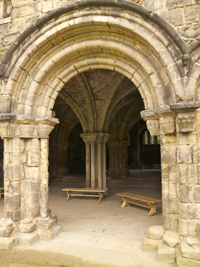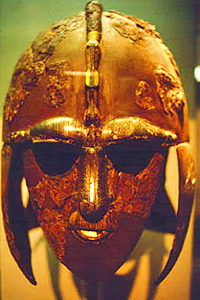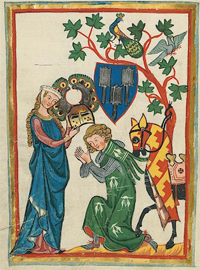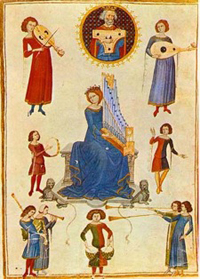10th Annual Symposium of the International Medieval Society – Paris
CALL FOR PAPERS
Dates: Thursday 27 – Saturday 29 June 2013
Location: Paris, France
Deadline for submissions: 1 December 2012
Keynote speakers: TBA
The International Medieval Society in Paris (IMS-Paris) is soliciting abstracts for individual papers and proposals for complete sessions for its 2013 symposium organized around the theme of “Color” in medieval France.
From the beginning of the Middle Ages, color was as connected to the visual and performing arts as it was to letters, theology, science, the livelihoods of medieval people, and their way of relating to the world.
Long before Vasari’s famous distinction between colore and disegno, medieval artists and musicians had recognized the great aesthetic, semiotic, and rhetorical potential of color. From a musical and rhetorical standpoint, the concept of color and the quality of ornatus both signified embellishment. In many ways such embellishments resulted in devices in musical notation that were intended as visualizations of the aural experience. These visualizations were derived from the definition of categories distinguished by aural cues, such as the symbolism and classification of church modes, whose qualities of were meant to be readily recognized by listeners.
As cultural references, colors–and the terms that described them–were subject to variations in meaning. In their material form of colorings and pigments, they were a commodity and a social signifier. The exoticism of these valuable substances could denote luxury and prestige down through the Middle Ages, from the purple pages of precious manuscripts to the dyes of clothing regulated by sumptuary laws. Yet color could also stigmatize or exclude, for medieval people classified, categorized, and imparted meaning by associating certain colors with specific minority groups and social hierarchies. This ‘semiotizing’ activity was crystallized in heraldry. Nevertheless, categories were not consistently mapped to colors. The variability of ‘color coding’ in medieval romance, the visual arts, or from one region to the next tests the limits of schematic, rigid views of color symbolism.
Meditations on color in literature, as in philosophy and theology, point to the agency of color, so that color is not solely a thing seen, but a potential to make things happen. The theology of light, through its attendant emphasis on color, intersected with the later reintroduction of the study of optics into the West via Latin translations of Arabic works that built upon ancient authors, giving rise to the development of theories of perspective, light, and color.
This symposium welcomes papers about color from all disciplines. In addition to approaches to color and light in medieval science and art (including the techniques for making colorings; the use of silver, gold, lapis lazuli and gemstones; grisaille and the absence of color), we invite analyses of the economics of color, the lexis of color, the symbolics and meaning(s) of color(s) in social history and literature, and approaches to color in philosophy, theology, and music (notation, embellishment, use of mode).
Proposals of 300 words or less (in English or French) for a 20-minute paper should be e-mailed to contact@ims-paris.org no later than 1 December 2012. Each should be accompanied by full contact information, a CV, and a list of audiovisual equipment you require.
Priority will be given to papers that address the French or francophone Middle Ages. Please be aware that the IMS-Paris submissions review process is highly competitive and is carried out on a strictly blind basis. The selection committee will notify applicants of its decision by e-mail by 20 December 2012.
Titles of accepted papers will be made available on the IMS-Paris web site. Authors of accepted papers will be responsible for their own travel costs and conference registration fee (35 euros, reduced for students, free for IMS-Paris members).
The IMS-Paris is an interdisciplinary, bilingual (French/English) organization that fosters exchanges between French and foreign scholars. For the past ten years, the IMS has served as a centre for medievalists who travel to France to conduct research, work, or study. For more information about the IMS-Paris and the programme of last year’s symposium, please visit our website: http://www.ims-paris.org.
IMS-Paris Graduate Student Prize
The IMS-Paris is pleased to offer one prize for the best graduate student paper proposal.
Applications should consist of:
1) Symposium paper abstract/proposal
2) current research project (Ph.D. dissertation research)
3) names and contact information of two academic references
The prizewinner will be selected by the board and a committee of honorary members, and will be notified upon acceptance to the Symposium. An award of 350 euros to support international travel/accommodations (within France, 150 euros) will be paid at the Symposium.







